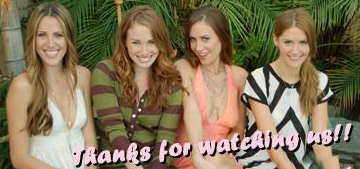Science Reporting by Press Release
Submitted by Sheldon Rampton on
Science reporting "is more and more the direct product of PR shops," according to Charles Petit, a veteran science reporter who runs MIT’s online Knight Science Journalism Tracker.

Submitted by Sheldon Rampton on
Science reporting "is more and more the direct product of PR shops," according to Charles Petit, a veteran science reporter who runs MIT’s online Knight Science Journalism Tracker.
Submitted by Bob Burton on
In its latest quarterly financial report to the U.S.
Submitted by Bob Burton on
An opinion column by David McKnight, an associate professor at the Journalism and Media Research Centre at the University of New South Wales, argues that "Rupert Murdoch's critics often make the mistake of caricaturing him as just another businessman, interested more in money than ideology. ... These claims underestimate Murdoch's powerful contribution to the shaping of political ideas in Britain, the U.S.
Submitted by John Stauber on
CMD's SourceWatch project has earned kudos from the New York Times: "It was among the juicier post-election recriminations: Fox News Channel quoted an unnamed McCain campaign figure as saying that Sarah Palin did not know that Africa was a continent.

Viral emails have emerged as a form of stealth propaganda recently, most noticeably in the recent U.S. presidential campaign, when Barack Obama was dogged with false claims that he was a Muslim, that he was refused to salute the American flag, that he was not a U.S. citizen and so forth. The Washington Post reported earlier this year that Danielle Allen, a professor at the Institute for Advanced Study in Princeton, New Jersey, attempted to trace the chain of one of those emails and found what the Washington Post called "valuable insight into the way political information circulates, mutates and sometimes devastates in the digital age." She noted that the anonymous nature of viral emails, combined with the word-of-mouth way that they spread, makes them hard to counter. "This kind of misinformation campaign short-circuits judgment," she said. "It also aggressively disregards the fundamental principle of free societies that one be able to debate one's accusers."
Submitted by Diane Farsetta on
A coalition of open records, good government and research groups submitted "a lengthy to-do list for President-elect Barack Obama and Congress." Their recommendations include overturning the "Ashcroft memo," which made it easier for federal agencies to refuse requests under the Freedom of Information Act (FOIA); rescinding Executiv
Submitted by Judith Siers-Poisson on
On Tuesday, the U.S. Federal Communications Commission (FCC) voted to open up the "white spaces" on the television spectrum that will be available when the U.S. switches from analog to all-digital in February 2009.
Submitted by Diane Farsetta on
 "'Brand integration' and 'immersive' commercial environments" are becoming more commonplace, as the range of media formats and platforms widens and viewers can increasingly avoid commercials, reports Gloria Goodale. This "blurring of story and selling" goes beyond traditional product placement.
"'Brand integration' and 'immersive' commercial environments" are becoming more commonplace, as the range of media formats and platforms widens and viewers can increasingly avoid commercials, reports Gloria Goodale. This "blurring of story and selling" goes beyond traditional product placement.
Submitted by Sheldon Rampton on
Newly released figures on newspaper sales show a decline of nearly five percent from a year ago, accelerating a trend that has been occurring since the 1990s.
Submitted by John Stauber on
The New York Times notes, "There are at least two wikis intended to let voters collaborate to collect examples of problems with voting, whether exceptionally long lines or more direct actions meant to scare off voters -- the Voter Suppression Wiki and SourceWatch's Election Protection Wiki.
Center for Media and Democracy (CMD)
520 University Ave, Ste 305 • Madison, WI 53703 • (608) 260-9713
CMD is a 501(c)(3) tax-exempt non-profit.
© 1993-2025